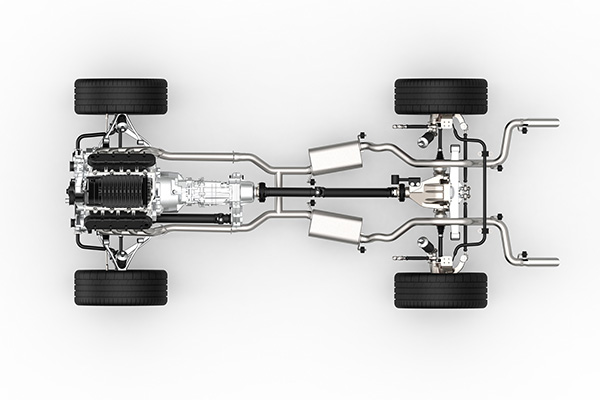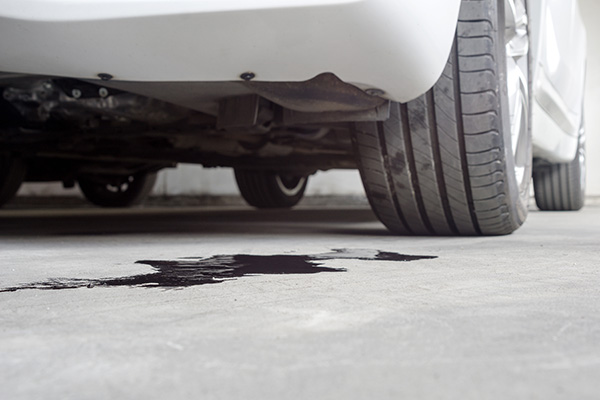Posted on 4/28/2024

Your vehicle's drivetrain maintenance is the key to performance. From power distribution to wheel movement, the drivetrain encompasses a complex system of components that work together to ensure smooth operation. Wear and tear lead to various problems that can affect your driving experience. Look out for these common drivetrain problems and address them as soon as possible. Transmission Troubles One of the most prevalent drivetrain problems is transmission issues. Whether it's an automatic or manual transmission, problems can arise due to various factors, such as fluid leaks, worn clutch plates, or faulty solenoids. Symptoms may include slipping gears, delayed engagement, or strange noises during gear shifts. Regular transmission fluid checks and servicing can help prevent these issues. Differential Dilemmas The differential is another critical component of the drivetrain responsible for distributing power to the wheels while allowin ... read more
Posted on 3/28/2024

You step out of your house, ready to start your day, only to find a puddle of mysterious fluid under your car. Fluid leaks can be a source of frustration and anxiety for car owners, often signaling underlying issues that require immediate attention. That's why we will take a look at a few of the most common reasons behind fluid leaks and how to avoid them. Identifying Common Fluid Leaks Fluid leaks can originate from various components within your car's engine and drivetrain, each with distinct characteristics and implications. Among the most common types of fluid leaks are: 1. Engine Oil Leaks An engine oil leak is typically identified by dark, slick spots beneath the engine area or visible oil drips on the ground. Ignoring engine oil leaks can lead to decreased lubrication, increased engine wear, and potential mechanical failures. 2. Coolant Leaks Coolant, also known as antifreeze, regulates engine temperature by dissipating heat generated during combus ... read more
Posted on 2/29/2024
.jpeg)
You're driving along the road, but something doesn't seem quite right. You press the brake pedal, expecting to see your stop lights illuminate in response, but nothing happens. It's a frustrating situation that can compromise your safety on the road. Let's take a look at the possible reasons behind this perplexing issue and explore solutions to ensure your stoplights function correctly. Potential Causes of Unresponsive Brake Lights Burnt Out Bulb One of the most common reasons for unresponsive stop lights is simply a burnt-out bulb. Over time, the filaments inside the bulbs can wear out, causing them to fail and no longer emit light when activated by the brake pedal. Faulty Brake Light Switch The brake light switch, located near the brake pedal, plays a crucial role in activating the stop lights when you press the brakes. If this switch malfunctions or becomes misaligned, it may fail to send the signal to illuminate the stop lights. Electrical Issues Problems wi ... read more
Posted on 1/27/2024
.jpeg)
Have you ever thought about how your car stays cool when it's really hot outside? Well, the radiator is the component that makes this happen. It's a very important part of your car's cooling system and works like an air conditioner for your engine. The radiator keeps your engine from getting too hot, which is really important, as you will learn below. The Function of a Radiator in a Car The radiator in your car plays a crucial role in regulating engine temperature. It's essentially a heat exchanger designed to keep the engine at an optimal temperature. If the engine runs too hot, it can lead to overheating, causing significant damage. The radiator helps to dissipate heat away from the engine, maintaining a balance between too hot and too cold. How the Radiator Works in the Cooling System The radiator works in tandem with other components of th ... read more
Posted on 12/22/2023
.jpeg)
In the tapestry of automotive care, one often-overlooked chore can significantly impact the lifespan of your vehicle's tires. We're talking about tire rotation. Do you want to know what it is, why it's important, and when you should do it? If so, you've come to the right place! Together, we'll uncover the secrets of this crucial maintenance task and make sure you understand everything you need to know. Let's dive in! Understanding the Tire Tread Tires don't wear out evenly. The front tires may bear the brunt of steering and braking forces, causing them to wear differently than the rear ones. This is where tire rotation steps in as the choreographer ensures an even distribution of wear and tear. The Tire Rotation Routine - When to Step ... read more